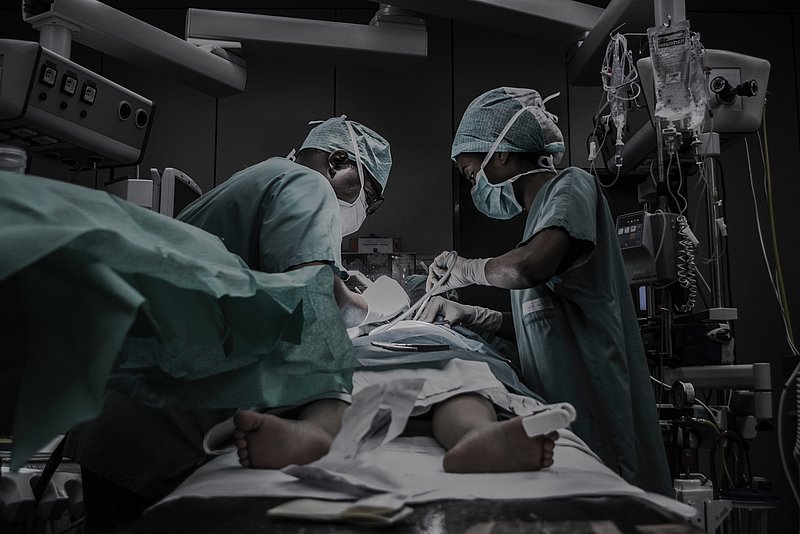You may remember that in our blog post two weeks ago, we reported on a worrying development: Instead of decreasing as a result of increasing education and mindfulness, plastic consumption continues to increase. This is also and primarily due to the Corona pandemic. According to a study, one of the main culprits identified are, of all things, those that are probably struggling the most right now, along with patients: Hospitals. They are responsible for more than 70 percent of the increase.
But, regarding the fourth Covid-19 wave, that's exactly why we would like to mention the following in front: We are aware of the difficult situation in which many hospitals and their staff currently find themselves. The discussion about plastic consumption is therefore of secondary importance at the moment. Nevertheless, with this blog post we would like to draw attention to the fact that hospitals play a central role in the debate, which is perhaps too rarely and too little highlighted. Even after the pandemic, they will be one of the major levers for reducing plastic consumption and, above all, saving unnecessary single-use plastic.
And how can this be achieved? Well, at first glance - from the outside view of a layman - it seems easy: replace single-use plastic with reusable plastic - or even better, alternatives to plastic. But the matter is a bit more complicated. Omitting the straw in a restaurant or replacing it with a bioplastic straw is becoming easier and easier, as we already learned in our interview with professor and MIX-UP coordinator Lars Blank. However, it is much more difficult to reduce plastic while lying on an operating table under anesthesia. Hardly anywhere else than in hospitals does hygiene play a greater role.
"Plastic offers many advantages for biomedical settings, it's cheap and easy to process and disinfect," says Bridgette Budhlall, an engineer at the University of Massachusetts Lowell in an interview with National Geographic magazine. She also points out that plastic can even be coated with special coatings that are extremely resistant to microbes. The American Chemistry Council, an important body in the U.S., is also convinced that "single-use plastic is the cleanest and most efficient solution" for ensuring hygiene in clinics. Mind you: cleanest solution in hospitals. Whether it is also the "cleanest solution" for our environment is highly doubtful.
That's why more and more environmentalists and organizations are trying to start not only with individual consumers, but with hospitals that can't simply do away with plastic, but need more specialized solutions. One of them is the non-profit organization Plastic Greenhealth from the USA. It has set itself the goal of revolutionizing the use of plastics in the healthcare sector step by step. They report on their first successes on their website: "Through education and process changes, Spectrum Health was able to shift thousands of pounds of medical plastic to recycling, which costs half as much as waste disposal."
Some hospitals, they say on their website, have worked with recycling companies to keep some clean medical plastics out of regulated medical waste and solid waste bins through recycling. They also make concrete suggestions on what a more sustainable plastic use in the hospital can look like. Single-stream recycling programs, for example, can accommodate many plastics from the operating room while eliminating the time it takes for sorting.
Examples of marketable recyclable medical plastics include:
- Sterilization wrap - polypropylene (PP) and may be recycled with other materials
- Irrigation bottles - polypropylene (PP), high-density polyethylene (HDPE), which can be recycled with other materials
- Basins, pitchers, trays - made from polypropylene (PP) and may be recycled with materials
- Tyvek - made from high-density polyethylene (HDPE) and may be recycled with other materials
- Flexible clear packaging - made from polyethylene (PE) and may be recycled with materials
So the possibilities are there - the only question that remains is whether and how quickly such a persistent, entrenched and complex system as hospitals can be changed. One thing is certain: the more pressure that comes "from outside", the faster it will happen - as with so many things.


